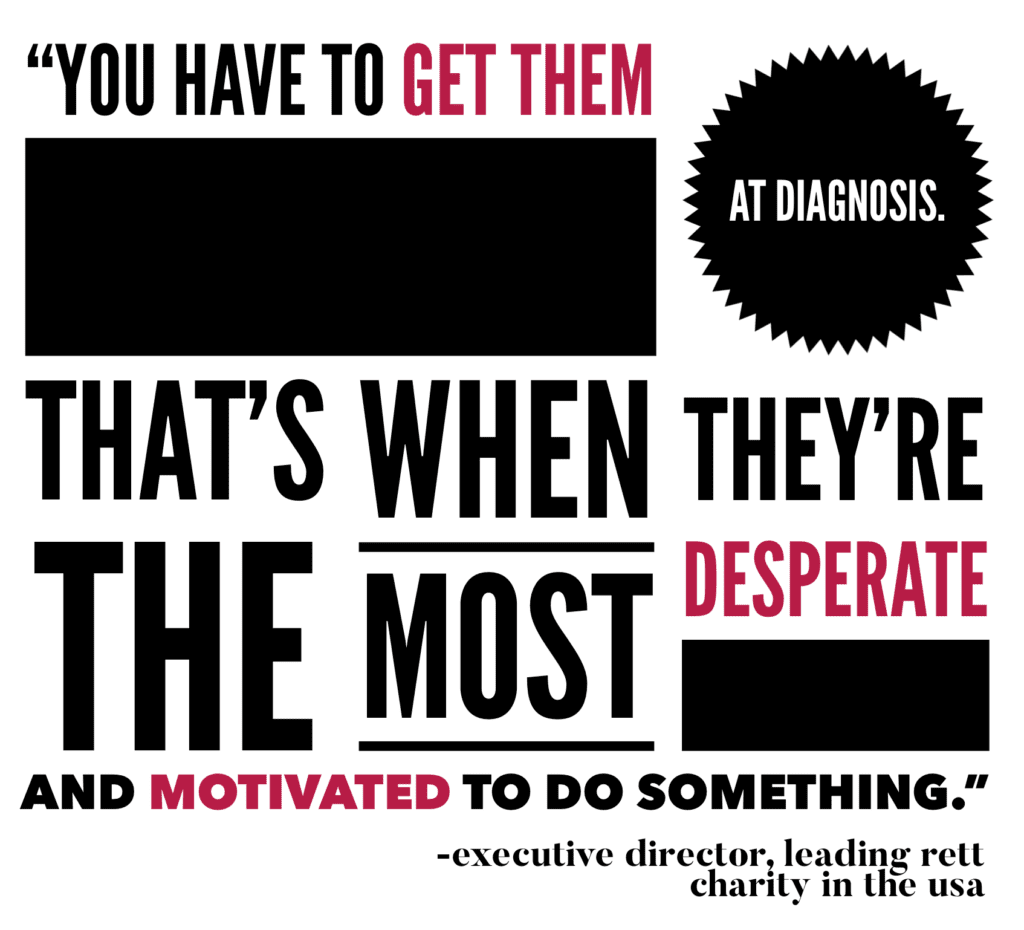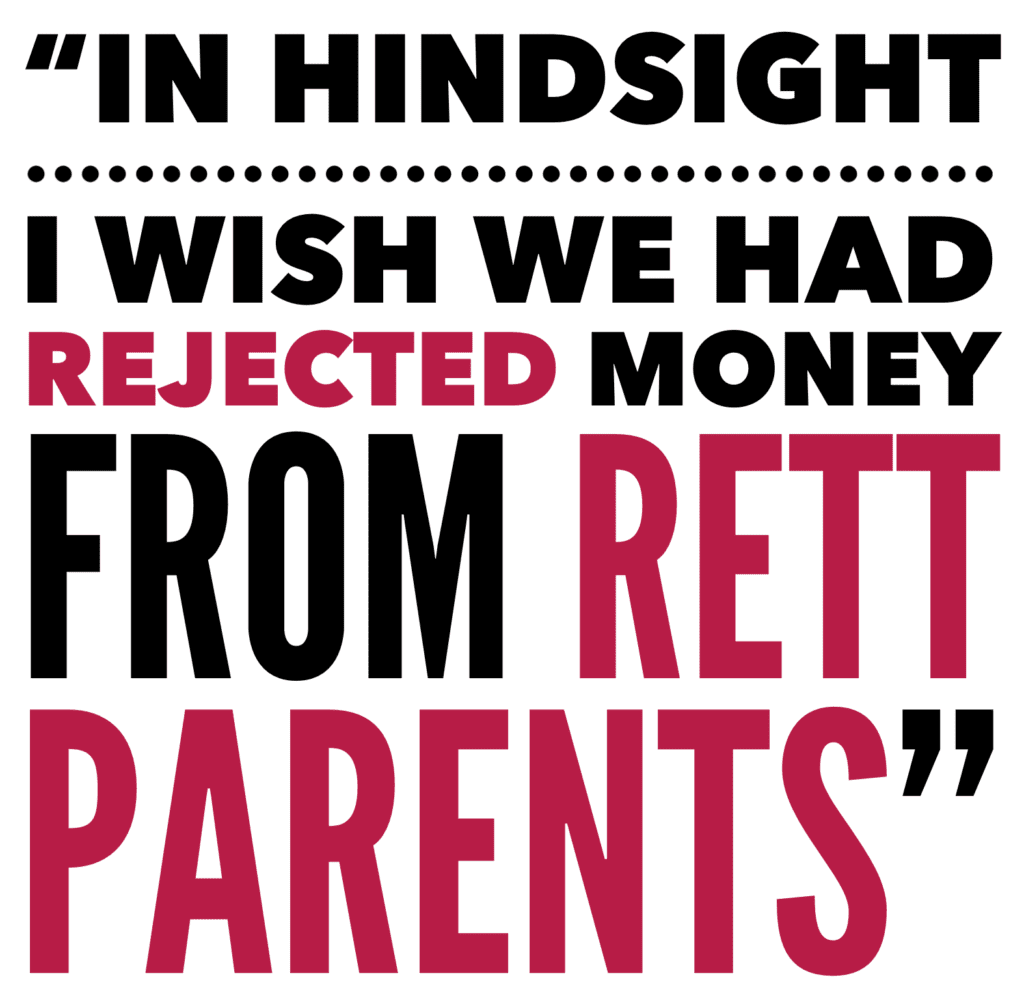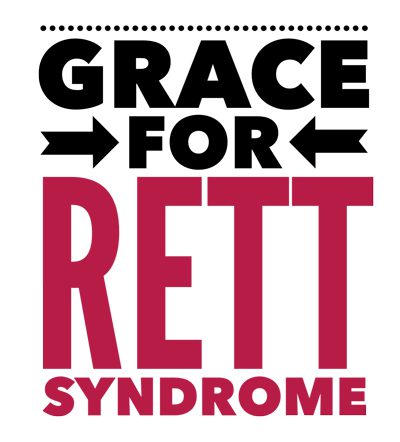Note: I started writing this post nearly 6 years ago. I revised, revised, revised for all these years. I almost posted it so many times and stopped myself. I continually ask myself “what is the end-game here? What is my goal?” and I understand how emotionally charged this topic can be.
Possibly better than most because I was a co-founder of a charity myself. I KNOW the fallout that can be caused when groups are segregated by the charities they support in an us-vs-them dynamic.
I encourage all participants in reading this post to read all the way to the end with an open heart.
So…what caused me to choose to post this NOW? Well…I received an email from a long time reader. He pasted the contents of an email he had received from a Rett parent who appears to be raising funds for a charity. Amongst the many lines which concerned me were phrases like: “It appears that 2019 will be the turning point after succeeding time after time to completely cure animals in lab conditions.” and “we are waiting for FDA approval to begin clinical trials in Rett syndrome girls, aiming to achieve complete cure. The expected approval is due to be granted in the first quarter of 2019.”
 You will read below the many reasons why emails like this are so scary to me, ESPECIALLY the reference to animals in labs being cured. And especially ESPECIALLY since there are already FDA-approved clinical trials and this is not a new phenomenon.
You will read below the many reasons why emails like this are so scary to me, ESPECIALLY the reference to animals in labs being cured. And especially ESPECIALLY since there are already FDA-approved clinical trials and this is not a new phenomenon.
Another reason I chose to post this now is that I spotted a leading charity explicitly campaigning to find a Rett family to spearhead an event to “speed the research”. This was positioned with a “now is the time” urgency. Rett families hardly have the energy to spearhead dinner time let alone the launch of a city-wide event. The lack of shame of lazy charities to solicit families (the population THE CHARITY SHOULD BE SUPPORTING) for support has reached a new low and I am not standing for it any longer.
So, without further ado…I give you the post 6 years in the making…
_________________________________________
Pop quiz: Let’s say you’re raising money for starving people in a developing nation. Or the homeless. Or refugees. Or victims of terror. Should you:
a. Get your money from those people
b. Get it somewhere else
Someone sent me a newspaper article about a little Rett girl here in America and her medical needs in relation to proposed Medicaid cuts. It scared me because at the time, Grace was also a Medicaid recipient.
But another thing that scares me is toward the end of that article talking about the desperate state of the little girl is the following: “(dad) works on the side as a Realtor, selling about seven houses a year. He donates half of every commission to Rett research.” That’s tens of thousands of dollars a year given to Rett charity. By a Rett parent. The very person that charity could be supporting.
Listen, charities shouldn’t be propped up by the population they are supposed to be servicing.
Homeless people don’t fund homeless charities. To ask this would just be inept. And lazy. And not at all intelligent or resourceful.
I don’t fault the families who raise funds or give their own money to the charities. I fault the charities who spread little soundbites and PR spin and call it “hope” and whip the community into a “cure is coming!” frenzy and get families pumping in money like they’re buying a cure. So here’s a soundbite: that famous mouse who was “cured” of Rett syndrome was genetically modified at its creation in a lab to be a mouse whose genes could be reversed. That mouse’s disease was modified with an off switch. At a gala event, I heard Professor Bird (whose lab did that experiment) say that this is not a sign of a magic bullet cure and that he’s not the Rett syndrome savior and that this doesn’t automatically connect the dots to a cure. Why? Because our girls weren’t created in a lab like that mouse. Their genes don’t have a convenient off switch. And why did he say that? Perhaps he was aware, at that gala fundraising event, that the buzz in the room was that you should give us your money because what happened to that mouse can happen for your daughter “if only we had the money to pay for it”. I was once told by a charity executive director in the UK that, “we could literally cure Rett with like…eleven million dollars.” Having been intimately acquainted with Rett charity leaders and the Rett community globally, I know one thing for certain: parents have been led to believe Rett can be cured if we throw enough money at it. And if this is true, then by all means, throw money. But you know who has more money than Rett parents? Starbucks. Or any other corporate in America.
When we were running Cure Rett, we came very close to getting our money pots on counters in Starbucks in the UK. Additionally, the flagship stores were going to run a happy hour and donate from every drink sold and this would have equated to hundreds of thousands of pounds. We failed to secure this gig at the last couple hurdles, but we were just a rag tag team of four tired parents (and one god parent) fumbling through the start up of a scrappy grassroots thing. If we can do it, so can long-time established charities who are currently relying on parents for support. If charities put the energy into getting to know how corporates, foundations, grants and private funds work, they can be 100% funded by them.
When Grace was diagnosed 8 years ago, I was told by that same charity executive director in the UK, “don’t fuss with that eye gaze stuff. There’s gonna be a cure in 5 years. When are you doing your first fundraiser?” How about never.
I put money into caring for my kid who HAS RETT SYNDROME.
Go tap up SMEs, corporates, fortune 500’s and blue chips and get the money to turn around and support our community. Educate parents about how to raise funds for their own daughters. Do fundraising bootcamps. Not for the charity in the name of their daughter but actually for their daughter. For things like eye gaze. Or even just taking her to Disney.
 When I was part of leading Cure Rett, one of our executives was advised by the director of a leading charity in the USA: “You have to get them (Rett families) at diagnosis. That’s when they’re the most desperate and motivated to do something. That’s when their families feel helpless and want to help. So when they say ‘what can we do?’ then they can direct them to raise funds for us.”
When I was part of leading Cure Rett, one of our executives was advised by the director of a leading charity in the USA: “You have to get them (Rett families) at diagnosis. That’s when they’re the most desperate and motivated to do something. That’s when their families feel helpless and want to help. So when they say ‘what can we do?’ then they can direct them to raise funds for us.”
When people ask what they can do, I tell them: they can babysit, they can help us pay for a wheelchair we can’t afford. These are the things I save my big asks for.
Here’s what no one tells you about fundraising…
Your first raise is your biggest.
After that, your circle gets tapped out. They get “charity fatigue”. In fact, the whole world is suffering from charity fatigue. So here’s the best tip you’ll ever get on Rett syndrome fundraising: make sure your first raise is for your own daughter. Her needs will increase as she gets older. There will be certain pieces of equipment you won’t be able to access without moolah. The charity director I quoted above is right: your family will feel helpless in the beginning and want to help. And make sure they help your daughter first, not a charity.
I once ran into a Rett family at a comedy show (Michael McIntyre…I won tickets in a silent auction at a Rett event…the only money I’ve ever given…because some rich guy said, “my girlfriend wants those tickets. You will NOT get them”. Game on, rich guy.) They were pretty fresh to the diagnosis. The mom, who had never met me before, said, “How can you even believe in God now?!” and all I could think was babe, you’re grieving so hard right now. And when I talked about eye gaze, the dad (whose high powered connections were currently being exploited by the first Rett charity to pounce on him post-diagnosis) looked a bit glazed over, “but…the cure…we don’t need eye gaze. The cure…” Yes, my friend…I know…the cure. The Cure. *sigh
 Now, I can hear you saying (and it makes sense): No one’s holding a gun to their heads. No one is being coerced to write checks. No, but coming as a former insider, I can honestly say that these families have been targeted. Read the above quote again:
Now, I can hear you saying (and it makes sense): No one’s holding a gun to their heads. No one is being coerced to write checks. No, but coming as a former insider, I can honestly say that these families have been targeted. Read the above quote again:
“You have to get them at diagnosis.”
When a new family comes into the community, the sentiment has been “let’s get them – quick – before so-and-so does.” At Cure Rett, we wanted to “get them” so we could offer them family support and photo sessions and awareness collateral and free services and prevent them from being exploited so early. From being pushed into raising money while they are vulnerable. Yes, some families raised money for us. In hindsight, I wish we had literally rejected it and given them permission to feel ok about spending money on their kids. I wish I hadn’t been so silent about the fact this was what I, myself, was doing. I wish I had modelled the behaviour for others. I wish we had given ourselves time to grow healthily into the charity we believed the community needed: a charity who was 100% funded by outside forces. I wish so much. (my heart still hurts over the loss of that sweet little charity).
Here’s a bombshell: charities aren’t the saviours of the Rett world. When I was new to this scene, I was told that there were “no public funds being put into MECP2 research”. That no governments or drug companies were working on this. This is an outright lie. Here’s why:
- I had a friend working for big pharma and she sent me internal documents on their Rett research. Naughty, I know…I had no idea she was going to do this but I was like “hey, presto! It’s a lie!”
- If you look at the scientific papers published about studies, there’s teeeeeny tiny print at the bottom citing where the funding comes from. They are in the order in which they funded: largest donors at the beginning, lesser ones towards the end. At the beginning are bodies like the NIH (US government) or Wellcome Trust (UK). At the end are the Rett charities.
I know #2 will ruffle some feathers. But c’mon…have you SEEN those numbers? How much the NIH is putting into this? Look at any given study and read the small print about who funded it. There are “heroes” in the Rett world who are supposedly funding all this, but quite simply when you look at the numbers, their efforts are a droplets in the sea. Valuable? Yes! And noble and important and powerful. But depriving your daughter of her needs to raise funds? No.
Charities need to learn to stop depending on Rett families, get off their keisters and start getting money from outside the Rett community. Not from me and you and the family who will get their diagnosis next month. But from the other millions of people who have nothing to do with Rett syndrome and have money to give away.
Because there are people dying and leaving all their money to cat charities.
If you want to raise money for a charity, no one (not even an irritated big talker like me) should stop you. You’re a grown up and can make up your own mind. But whatever you do, don’t feel like your daughter’s life depends on it and for the love of Pete…don’t ask for money from inside the Rett community. And remember: your first raise is going to be your biggest so do that one for your own daughter.
So what’s the solution? Raising lots and lots of money for Rett charities to fund lots and lots of science. And even to pay their employees really really well so they can focus all of their energies on raising more and more money for lots and lots of science.
But for God’s sake, please stop soliciting these funds from the population you’re supposed to be supporting.
It’s important to say that while all Rett charities actively seek funding from inside the community, some charities have gotten smart and sell merch and run education summits and family support events. While I do have some hot anger directed at certain individuals who single-mindedly exploit our population, there are charities who have been pillars of the community for decades – funding long term, sensible and valuable science.
Rett families, spend your money on your girls without shame.
*end rant*





 I can’t remember ever ONCE being told I’m “too busy” by fellow special parents. Because my tribe knows these things are non negotiable. I’m not busy. I’m surviving. I’m parenting a kid with a life-long and chronic illness and some weeks, that means just trying to help her not to die from bugs that would just make a typical kid sneeze a couple times.
I can’t remember ever ONCE being told I’m “too busy” by fellow special parents. Because my tribe knows these things are non negotiable. I’m not busy. I’m surviving. I’m parenting a kid with a life-long and chronic illness and some weeks, that means just trying to help her not to die from bugs that would just make a typical kid sneeze a couple times. Grace is in the ICU in critical condition with aspiration pneumonia. And I did NOT see this coming.
Grace is in the ICU in critical condition with aspiration pneumonia. And I did NOT see this coming.
